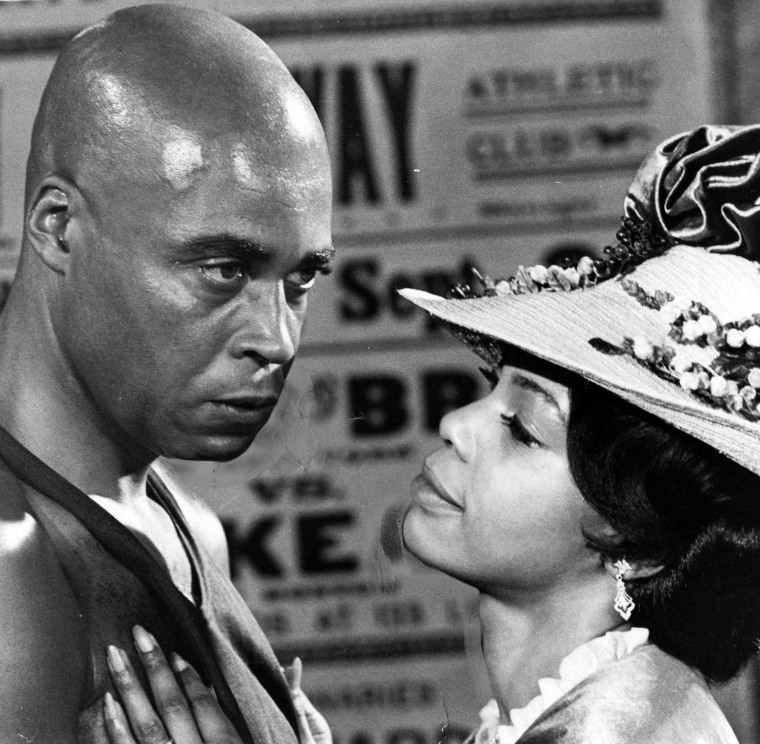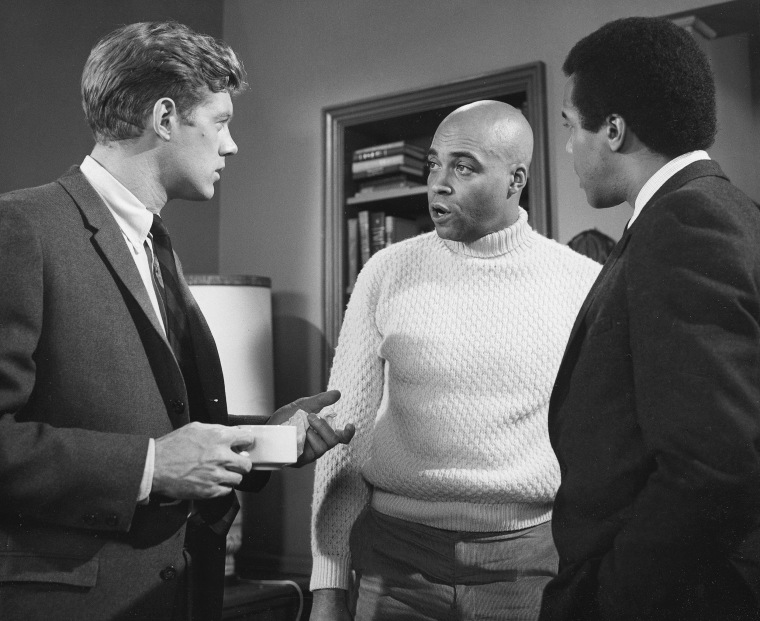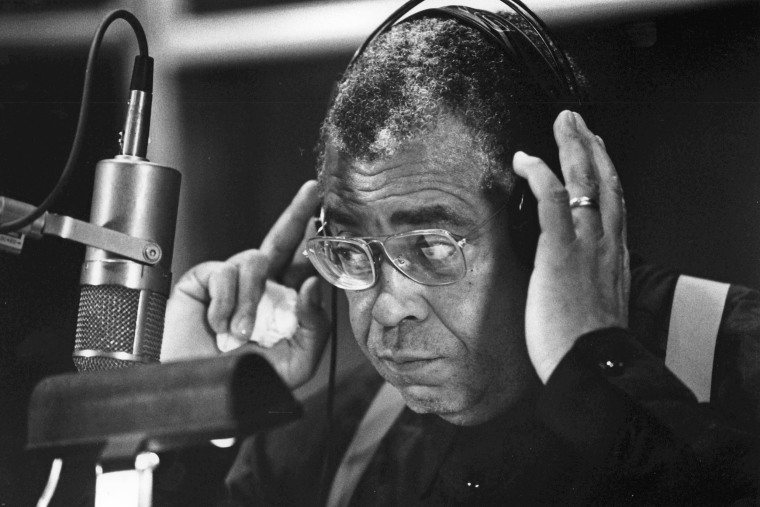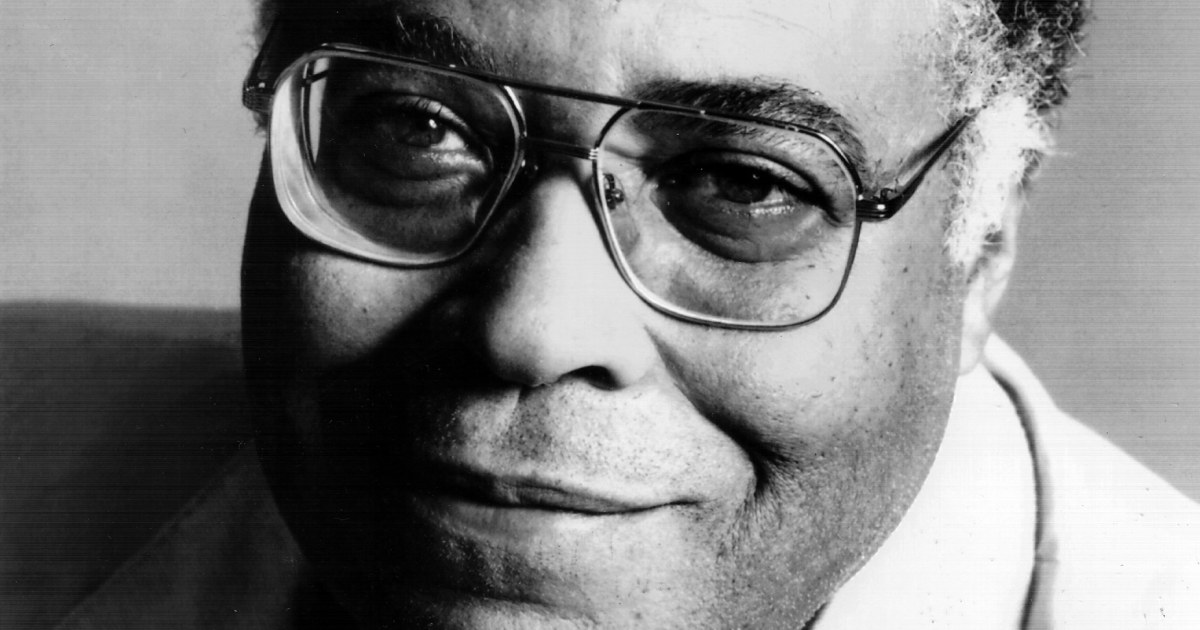When New York’s Cort Theatre was renamed after James Earl Jones in 2022, Samuel L. Jackson said, “If you are an actor or you aspired to be an actor or you pounded the pavement in these streets looking for jobs and doing things — one of the standards that we always had was to be a James Earl Jones.”
Jones was the “standard” for actors. He died Monday at age 93.
In the wake of his death, actors have shared poignant messages about Jones’ influence, calling him a path-blazer for actors like Denzel Washington and others who came after him.
“Thank you dear James Earl Jones for everything,” the Oscar-nominated actor Colman Domingo wrote Monday in a post on X. “A master of our craft. We stand on your shoulders. Rest now. You gave us your best.”
Jones is best known for voicing the iconic characters Darth Vader and Mufasa, and for his roles in movies like “Coming to America.” Initially a stage actor, he began his film career with “Dr. Strangelove” in 1964 and most recently reprised his role as King Joffer in “Coming 2 America,” the 2021 sequel. Although he wasn’t a leading movie star in his early years, like Sidney Poitier or Harry Belafonte, Jones had a lengthy acting career that served as a touchstone for later generations.

At the 55th NAACP Image Awards in March, “Rebel Ridge” actor Aaron Pierre praised Jones during an interview on the red carpet.
“James Earl Jones is one of my greatest inspirations,” Pierre told a reporter. Pierre is set to voice Mufasa in “Mufasa: The Lion King,” a prequel to the 2019 photorealistic remake of “The Lion King.” “He is a phenomenal artist and I pray to God that I get to meet him someday. Did you ever see him in ‘Fences’? That’s the man right there.”
Jones is an EGOT performer, with two Emmys, two Tonys, an honorary Academy Award and a Grammy. He commanded the stage in productions like “Othello,” “Fences” and “The Great White Hope,” and the screen in movies like the 1974 dramedy “Claudine,” “Conan the Barbarian” in 1982, and many others. He boasts dozens of television credits, including “Roots,” L.A. Law,” “Gabriel’s Fire,” and “The Simpsons.”
Jones was known for his booming, baritone voice, but the actors he influenced always knew he was much more than that. Wendell Pierce wrote in a post on X that “James Earl Jones is the sole reason I became an actor.”
“This man was the living embodiment of artistry, integrity, creativity, and dignity,” Pierce, of “The Wire” and “Treme,” wrote Monday. “He stirred a vocation in me that gave voice to my unsung heart songs. By example, he led me on the exploration of my own personal humanity and the study of human behavior in others and the intangible, ever-present soul. He was a once in a generation talent that has left an enormous legacy in American culture.”

The Rev. Bernice King, daughter of Coretta Scott King and Martin Luther King Jr., wrote on social media that Jones supported the Civil Rights Movement and lent his voice to the 1970 documentary, “King: A Filmed Record … From Montgomery to Memphis.” King wrote that her parents admired Jones’ “commitment to justice.”
Although Jones was not active in the movement, he said he considered his roles dealing with racial issues as his contribution to civil rights, according to The New York Times. He said early in his career that he admired Malcolm X and might have been a revolutionary if he had not become an actor.
In 1969, Jones became the first Black actor to win a Tony award for a leading role in a play for “The Great White Hope,” in which he portrayed Jack Johnson, the first Black heavyweight boxing champion.

“The Great White Hope” came out the year after King’s assassination, “and there were riots in the streets of the United States,” Dominic Taylor, a professor of African American theater at UCLA, previously told NBC News. “And here is this Black man who wins for this role in which he’s Jack Johnson, basically. I don’t think people today are aware of how earthshaking that was.”
Taylor added, “He was a gargantuan presence but such a fine, precise, attuned actor onstage. It was beautiful to watch him work.”
For more from NBC BLK, sign up for our weekly newsletter.


